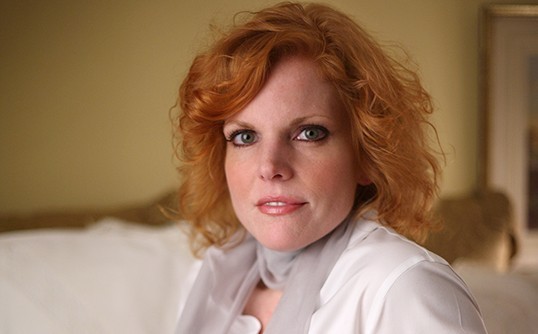
Who says career moves have to be lateral? Laura Caldwell was a partner in a Chicago law firm, specializing in medical malpractice defense and entertainment law, when — with the support of colleagues and her then-husband — she made the transition to full-time author. Her first book, Burning the Map, was a New York Times best seller and named one of the best books of the year by Barnes & Noble booklist and she’s since gone on to publish 14 novels and one nonfiction book.
While researching her sixth novel, Laura became involved in the criminal case of a young man who was coerced into confessing a crime he didn’t commit. Ultimately, she helped prove his innocence and wrote her first nonfiction book, Long Way Home: A Young Man Lost in the System and the Two Women Who Found Him. Inspired, Laura then founded Loyola’s Life After Innocence, which assists wrongfully convicted individuals and other innocent persons affected by the criminal justice system in order to help them re-enter society and reclaim their lives.
From civil trial attorney to accomplished author, nonprofit founder and scholar in residence at Loyola University, we dive into Laura’s unexpected career transition below.
What was that transition like from lawyer to author? What prompted you to take a departure to a new career path?
I had completed one novel, shopped it to agents to no avail and was halfway through another book when my husband at the time suggested I take time off to focus on writing. It was a bold proposal to me — the idea of devoting a whole period of time to something creative; to something that was, essentially, a hobby. My law partners at the time offered to take over my cases. When people support and encourage you like that, whether it's a spouse, mentor, family member, friend or colleague, it's a true gift.
Once you knew you wanted to be an author, what came next in the process?
I took writing classes for three years before I finished a draft of Burning the Map, my first book. I submitted it to agents for a few years without getting any solid traction. But every agent I got to speak to said, "If you really want to do this, keep writing. We want to sell more than one book." So I did. By the time I sold my first book, I had another mostly written and a third started.
Where do you find inspiration, especially as you're constantly creating new characters and different, juicy plot lines?
In the case of The Dog Park, I'll admit, I was inspired by a 14-pound ball of energy: my dog. That's not something I thought I would say before — that I was inspired by a pet.
Readers sometimes write me about my Izzy McNeil novels and say Izzy needs a dog. I thought it was an interesting suggestion, but I worried I'd spend much the novel plotting around whether Izzy had dog care. But then I got my goldendoodle, Shafer, and all bets were off. She has a friendly but serene personality that draws in people and seems to calm them. I liked the idea of a dog like that, just a Chicago dog, who is unexpectedly famous and becomes a celebrity dog.
The life of a writer can be a solitary one. How do you organize your day to fit in both writing time and time out, interacting with others?
I'm the oldest of four kids, so I love alone time. It's making myself do the writing during the intended writing time that's the tricky part. Like so many, I get caught up cancelling out emails and checking off to-dos, rather than working on the main project. I try to use goal-setting and really try to hit those goals by telling other people the deadline or task I've set, then reporting back to them.
What is the absolute greatest aspect of working for yourself [and, obviously a publisher!]?
More time with the dog!
What is your personal code of conduct that you live by?
My life's motto is sort of like a line a line from a Bob Schneider song — I want to be like Jesus Christ. Keep the party moving, give the good advice.
What qualities do you feel it takes for someone to be successful in your line of work?
Discipline and a taste for the absurd.
What one piece of advice do you wish you could tell a 21-year-old version of yourself?
Keep your eyes wide open, noticing the world, then open them wider. Then remember to keep your heart open, too.
Where do you see yourself five years from now?
Hmmm, a five-year plan? I've never made one of those. In five years, I hope Life After Innocence, the organization I've founded, is thriving and we're helping innocence organizations around the country to provide exoneree support. I hope my books have sold into film and TV. And I hope my dog is really, really, really happy.